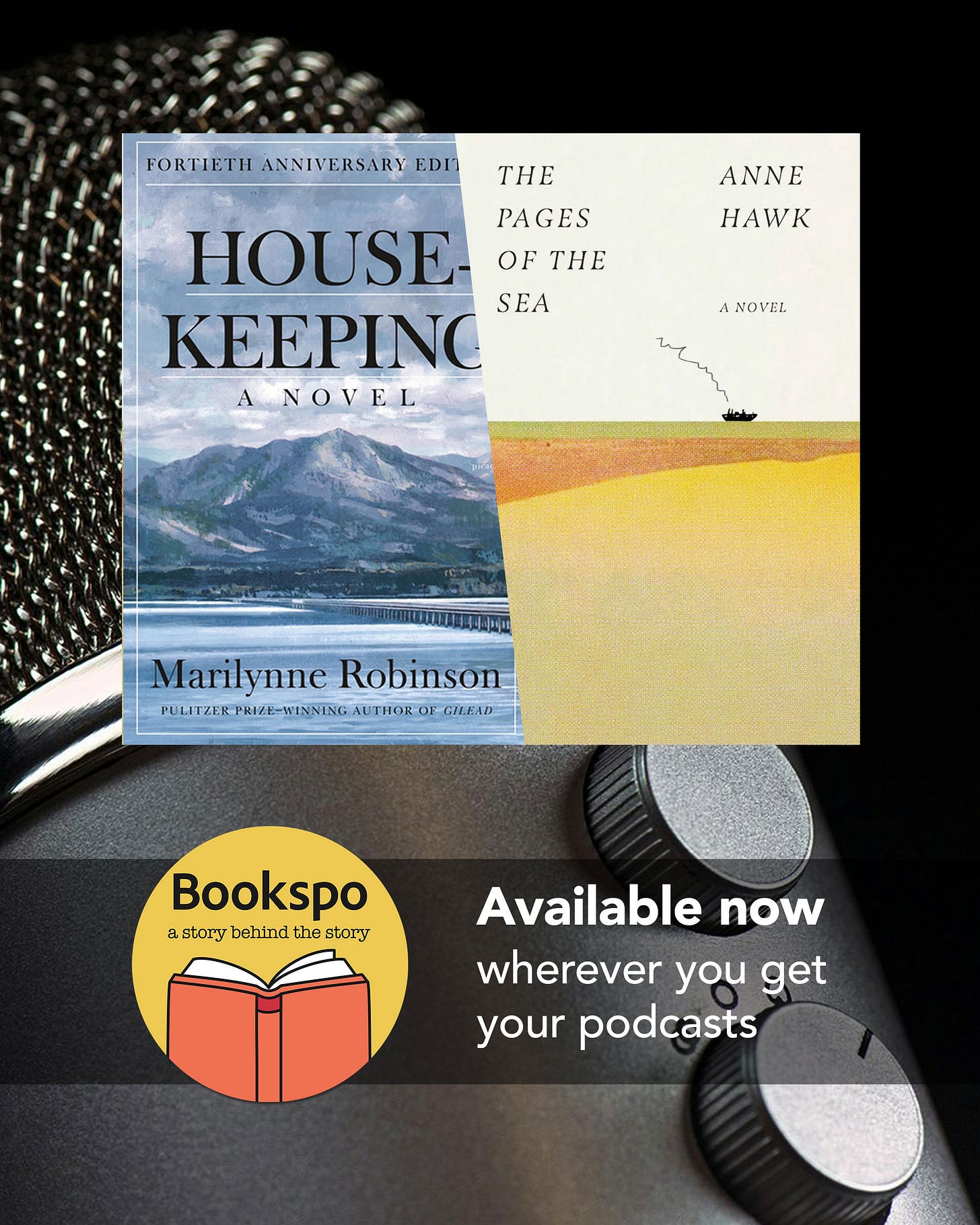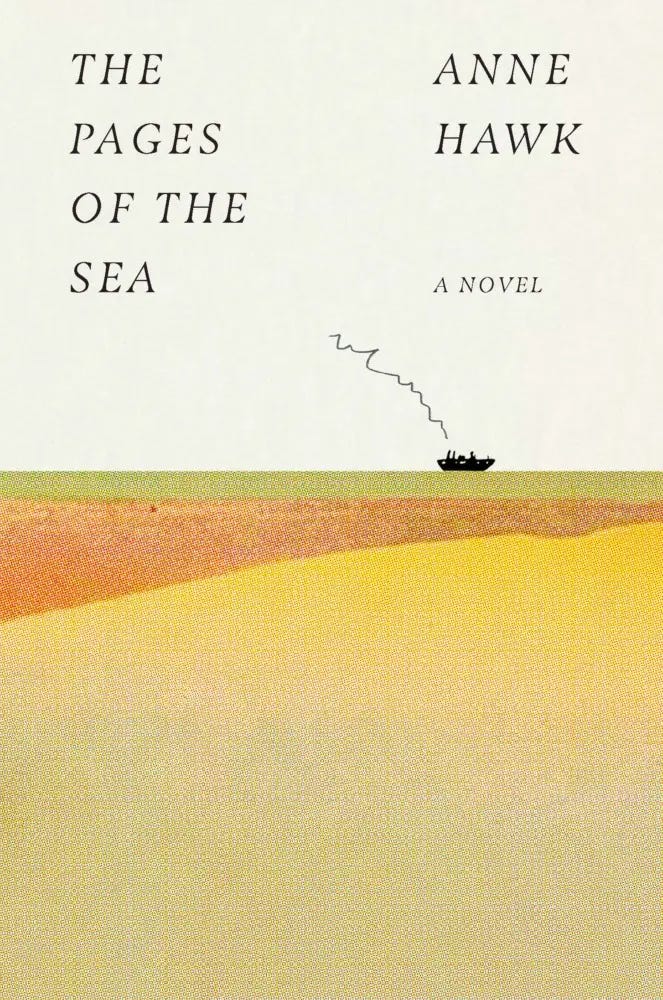Marilynne Robinson’s debut novel never actually came to mind while I was reading Anne Hawk’s THE PAGES OF THE SEA (which The Guardian called “evocative of the beauty of the Caribbean and full of sparkling observation" when it was published in the UK in July), but when I learned that HOUSEKEEPING was Hawk’s BOOKSPO pick, it made such perfect sense. The everpresence of water, Robinson’s lake and Hawk’s sea, houses that blurred boundaries between inside and out, marginalized from their communities, their depictions of childhood and of children who give form to their worlds. It had been nearly 20 years since I last read HOUSEKEEPING, and it was a really remarkable experience to pick it up again to read within the context of Hawk’s same-but-very-different novel, set in an unnamed Caribbean island during the 1960s as a young girl makes sense of the absence of her mother who has left to find work in England, as so many people from the Caribbean did during the post-war period, comprising the Windrush Generation.
My conversation with Anne Hawk is such a gift. She talks about her desire to write about childhood, to create a narrative showing the ways in which children communicate with their surroundings and spend their seemingly idle time constructing and reconstructing the world around them. She tells me about her own curious relationship with HOUSEKEEPING, a book that keeps on giving, and also about how she doesn’t truly really believe that one book begets another, but how both books share an atmosphere, an undercurrent of sadness and loss, as well as characters well rooted in their fear of abandonment. Hawk then explains the story of the Windrush Generation, and talks about how THE PAGES OF THE SEA is different from other books on the subject that readers might have encountered before.
On a Caribbean island in the mid-1960s, a young girl copes with the heavy cost of migration.
When her mother emigrates to England to find work, Wheeler and her older sisters are left to live with their aunts and cousins. She spends most days with her cousin Donelle, knocking about their island community. They know they must address their elders properly and change their shoes after church. And during the long, quiet weeks of Lent, when the absent sound of the radio seems to follow them down the road, they look forward to kite season. But Donelle is just a child, too, and though her sisters look after her with varying levels of patience, Wheeler couldn’t feel more alone. Everyone tells her that soon her mother will send for her, but how much longer will it be? And as she does her best to navigate the tensions between her aunts, why does it feel like there’s no one looking out for her at all?
A story of sisterhood, secrets, and the sacrifices of love, The Pages of the Sea is a tenderly lyrical portrait of innocence and an intensely moving evocation of what it’s like to be a child left behind.
Anne Hawk grew up in the Caribbean, the UK and Canada. She has worked as a journalist, a paralegal and was for many years a secondary school teacher. She is married and lives in London. The Pages of the Sea is her first novel.















Share this post